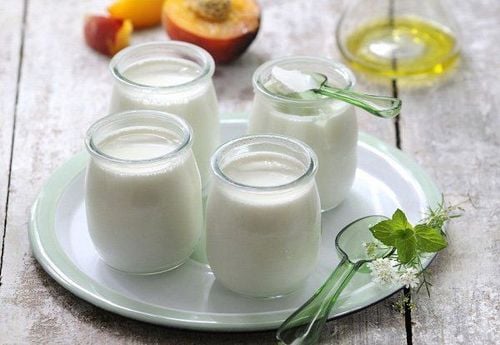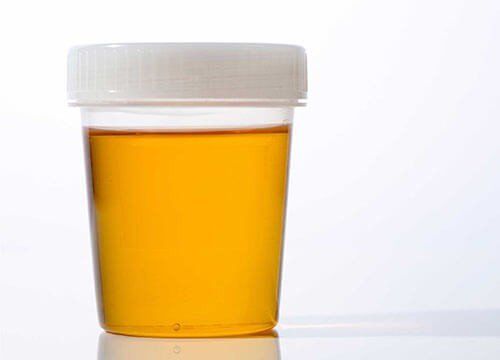This is an automatically translated article.
Water is best for hydration and body health, we all need water to survive, but it can be difficult to get kids to drink the recommended amount of water daily, especially after Children have many water alternatives such as breast milk, formula, chocolate and juice.
1. How to get children to drink more water?
1.1. How much water does a child need? The human body is about 70% water, and so are children. Drinking a lot of water is very good for the body especially for children. Children's bodies need water to stay healthy, especially when they are active. When your child is well-hydrated, it helps lower body temperature, aids digestion, keeps their brain and muscles working at peak performance, and even lubricates joints.
Depending on age, height, weight, each child's water needs are different. Children over 1 year old need to drink about 60ml of water for 1kg of body weight per day. Ideally, each child should be able to drink 6-8 glasses of water per day. This amount of water already includes milk, juice and some other drinks.

Khi trời nóng nên cho trẻ uống nhiều nước giúp trẻ tránh kiệt sức và mất nước
In addition, the amount of water per day for the child depends on the weather and the child's activities. When it's hot, active babies can add an extra cup of water for an hour of activity, and more may be needed if they lose a lot of sweat because their sweat glands are not as developed as in adults, and the body loses a lot. Time to cool down, drinking plenty of water helps children avoid exhaustion and dehydration.
When it is cold, children drink a lot of warm water to keep the body warm and avoid infection. Diarrhea and vomiting also cause dehydration, if not replenished in time, the body will be severely dehydrated, affecting health. So let your child drink plenty of water every day and more when he is not feeling well.
1.2. Good drinks for kids

Sữa chua rất tốt cho hệ tiêu hóa của trẻ
Fruit juices add essential vitamins and minerals, but it is recommended that you only add about 120-200ml per day, instead of giving your child bottled water, carbonated soft drinks, you should give them water to drink. pure fruit juice.
In addition, to replenish water, you can give your child some fruits and vegetables such as watermelon, strawberries, which contain about 90-99% water. Other types of lettuce, spinach, also contain similar amounts of water. Many experts have shown that drinking a lot of juice without eating fruit will easily lead to a lack of fiber, which can cause constipation.
2. Some tips for children to drink more water

Hãy chuẩn bị một cốc nước ấm dành cho trẻ uống một chút trước khi đi ngủ hay khi thức dậy vào mỗi buổi sáng
2.1. Water is available whenever your child needs it. When your child is having fun, give him a bottle of water, he may refuse to drink it, but ask him to take a few sips. Over time, children will have the habit of drinking more water without waiting until they are really thirsty. Always keep water containers within reach of children, so they can drink whenever they want. Prepare a cup of warm water by your child's bed so he can drink some before going to bed or when he wakes up in the morning.
2.2. Be a role model Children have a habit of imitating what adults do. And the best teaching tool is to set a good example for your child to follow, refill your water bottle and let your child see you finish it throughout the day.
2.3. Make drinking water interesting Children will enjoy drinking water when they have their own cup and straw with funny shapes related to their interests such as: Dinosaur, princess, machine flying, cars, fairies ....A pretty small water bottle with a convenient strap will be a good choice when you let your child go out for a walk or go somewhere, so that the child can drink water whenever he or she want without having to wait for their parents to give it to them.
Note that all straws or baby water bottles must be made from BPA-free plastic (bisphenol A).

Các loại cốc ông hút hay bình nước dành cho trẻ đều phải được chế biến từ nhựa không chứa BPA
Giving 2 cups of water with different flavors for the child to choose for themselves will make the child feel like an adult and make the child more excited about drinking water.
Another suggestion is to make ice cream with your child with juice or milk, add a few berries like grapes, kiwi, raspberries, strawberries, blueberries...and then enjoy them together.
2.5. Make drinking water a fun game Reduce the pressure of having to drink lots of water for your child by making it part of playtime. For example, together with children organize a small tea party and in which the tea cups will be real water, clink glasses and enjoy together.
When babies are breastfed or formula fed, how much water they absorb is not as important as learning how to drink little by little.
2.6. Drinking water becomes a process Try to make drinking water a necessary process to do after doing something such as: drinking water after eating, drinking water after playing, drinking water after doing a job, drink it when you get home after a busy day outside... turn drinking water into a reward for effort.

Hạn chế cho trẻ uống nhiều đồ ngọt hay sữa
2.8. Add more water-containing foods Filtered water is not the only option. Don't forget soups, smoothies, yogurt drinks, herbal teas... are also options for children to add water to their bodies, or it's also a way for children to get more fruits and vegetables in their diet. daily rations.
2.9. Incentive with rewards Set a daily water drinking goal for each family member. And when someone accomplishes the set goal will be a small reward and praise from other family members. Children are very aggressive and when they win someone will motivate them to try harder.
3. The symptoms of dehydration in children require the intervention of a doctor.

Nước tiểu màu vàng đậm là dấu hiệu trẻ mất nước mức độ nhẹ
Daily water supplementation is very good for the child's body, even if the child is healthy. If a child shows signs of being unwell but refuses to drink water, that is a cause for concern.
Some signs of mild dehydration:
Dizziness or lightheadedness Nausea or headache Dark yellow or brown urine (normal urine is light yellow) Wet diapers less than usual, or an older child won't frequent bowel movements Dry lips, tongue, mouth, or throat. Signs of severe dehydration in your child
Extreme thirst (gives him water to drink) coma or poor activity uncomfortable. Getting children into the habit of drinking lots of water is difficult for moms with toddlers or over 2 years old, it really takes your patience. But don't make it a battleground or lenient. As Essential Baby says, "Don't be tempted to replace water with fruit juice, otherwise it will be very difficult to switch to plain water later on." Just make sure water is available when your child needs it, let them see you drinking as a matter of course (remember to show your child how happy you are when it comes to drinking water), and they have no choice but to drink water. .
Children in the period from 6 months to 3 years old are very susceptible to respiratory problems, respiratory infections, skin diseases and gastrointestinal infections... parents need special attention attention to the care and provision of adequate nutrition for children.
Parents should supplement their children with supportive products containing lysine, essential micro-minerals and vitamins such as zinc, chromium, selenium, and B vitamins to help fully meet their child's nutritional needs. At the same time, these essential vitamins also support digestion, enhance nutrient absorption, help improve anorexia, and help children eat well.
Parents can learn more:
Signs of zinc deficiency in children
Micronutrient deficiency and failure to gain weight in children
Please regularly visit Vinmec.com website and update useful information to take care of your child. Take care of the baby and the whole family.
References: babycenter.com, intermountainhealthcare.org, newidea.com.au













